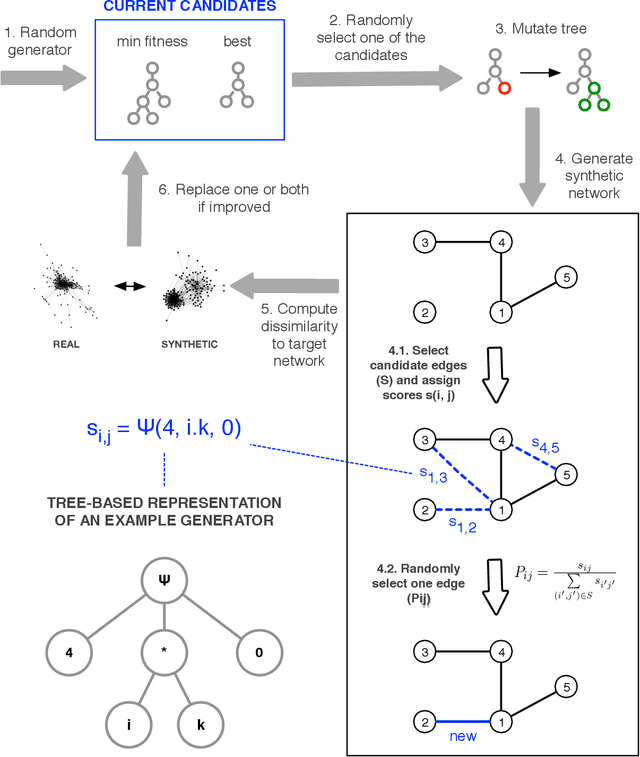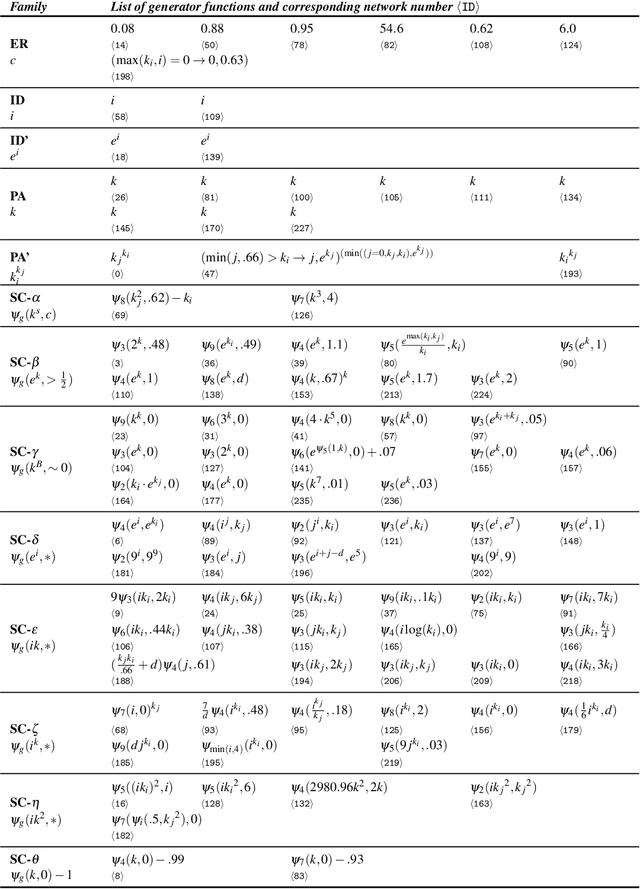Automatic Discovery of Families of Network Generative Processes
Paper and Code
Jun 26, 2019



Designing plausible network models typically requires scholars to form a priori intuitions on the key drivers of network formation. Oftentimes, these intuitions are supported by the statistical estimation of a selection of network evolution processes which will form the basis of the model to be developed. Machine learning techniques have lately been introduced to assist the automatic discovery of generative models. These approaches may more broadly be described as "symbolic regression", where fundamental network dynamic functions, rather than just parameters, are evolved through genetic programming. This chapter first aims at reviewing the principles, efforts and the emerging literature in this direction, which is very much aligned with the idea of creating artificial scientists. Our contribution then aims more specifically at building upon an approach recently developed by us [Menezes \& Roth, 2014] in order to demonstrate the existence of families of networks that may be described by similar generative processes. In other words, symbolic regression may be used to group networks according to their inferred genotype (in terms of generative processes) rather than their observed phenotype (in terms of statistical/topological features). Our empirical case is based on an original data set of 238 anonymized ego-centered networks of Facebook friends, further yielding insights on the formation of sociability networks.
 Add to Chrome
Add to Chrome Add to Firefox
Add to Firefox Add to Edge
Add to Edge